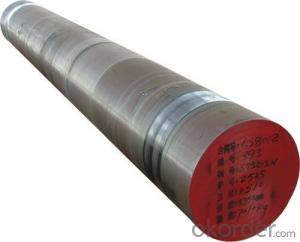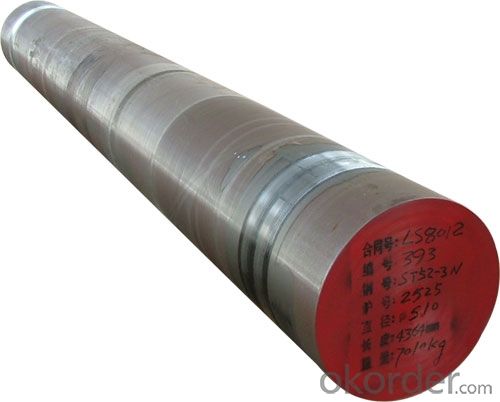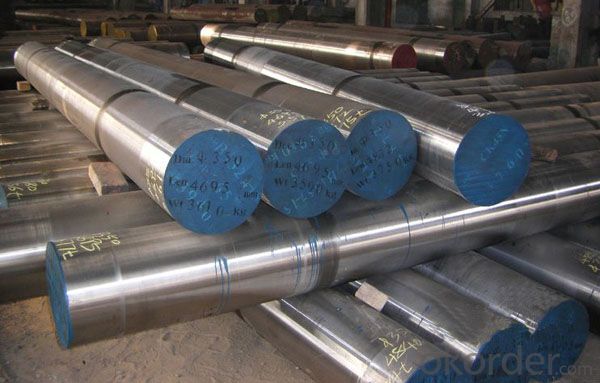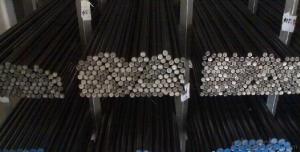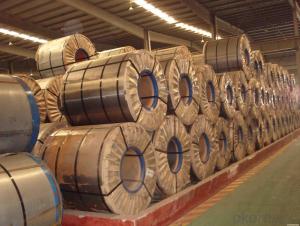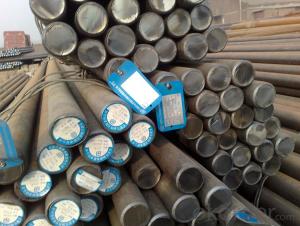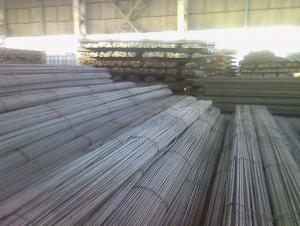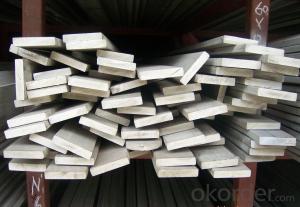Alloy Steel Spring Steel Round 65Mn Forged Steel
- Loading Port:
- China main port
- Payment Terms:
- TT OR LC
- Min Order Qty:
- 30 m.t.
- Supply Capability:
- 10000 m.t./month
OKorder Service Pledge
OKorder Financial Service
You Might Also Like
Specification
Product information:
Specification
| Product: | hot rolled spring steel coil strip 65mn, 1566 |
| Technique of production: | hot rolling , no annealing ,acid pickling |
| Productivity: | 300,000 Tons/year |
| Thickness: | 0.75-200mm |
| Width: | 914-2000mm |
| Coil Weight: | 3-10 Tons |
| Inside Diameter: | 508mm Or 610mm |
| Outside Diameter | 1000-1500mm |
| Standard: | ASTM A36, JISG3101, EN10025, ISO630, GB/T |
| Surface: | Light oil, without oil |
| Package: | Export standard package or as request |
| Application | Widely used in ships, automobiles, bridges, buildings, machinery, boilers, pressure vessels and other manufacturing industries |
Product Show:
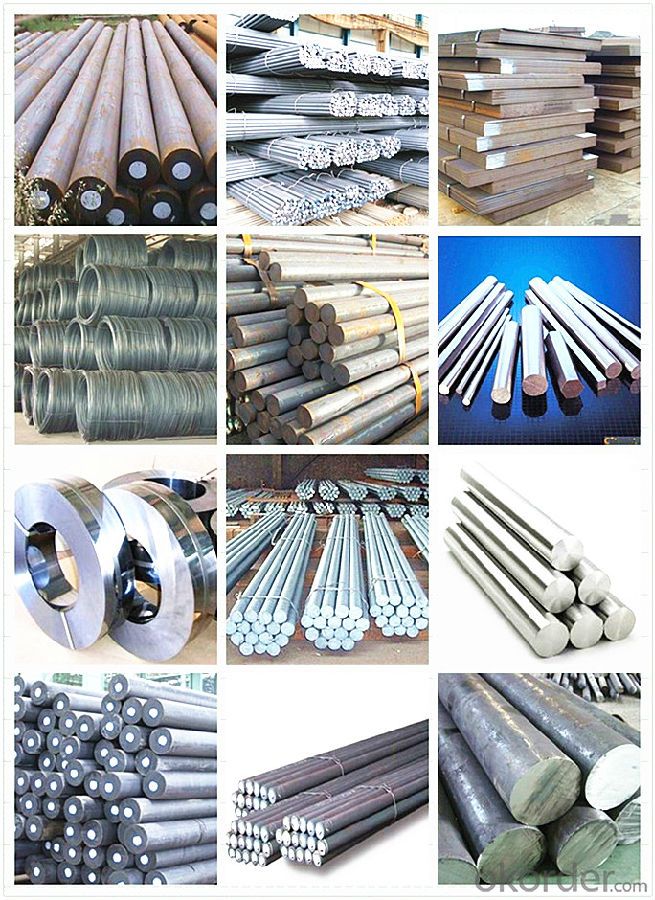
Workshop Show:
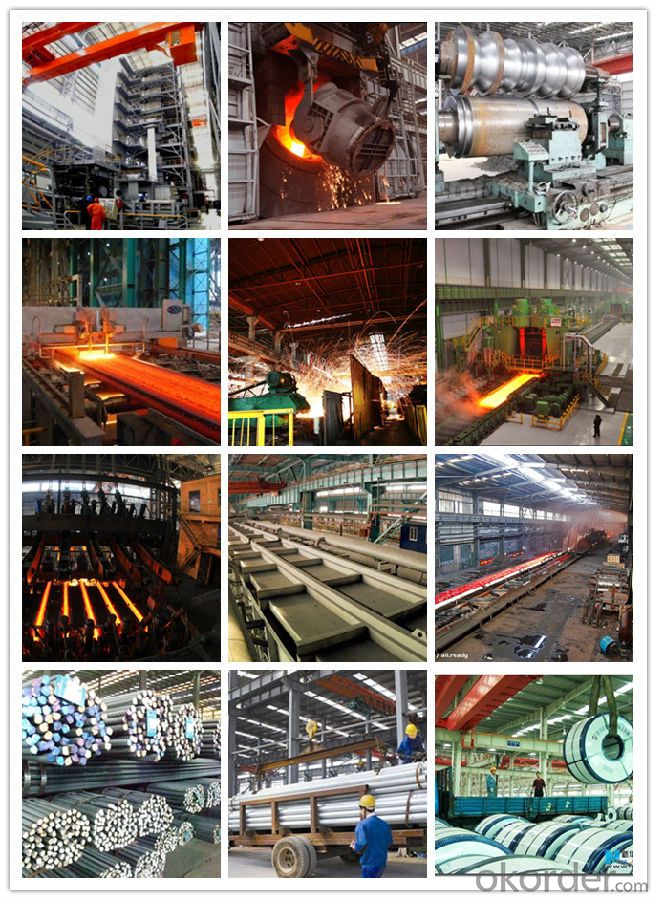
Shipping
1. FedEx/DHL/UPS/TNT for samples, Door-to-Door;
2. By Air or by Sea for batch goods, for FCL; Airport/ Port receiving;
3. Customers specifying freight forwarders or negotiable shipping methods!
Delivery Time: 3-7 days for samples; 5-25 days for batch goods.
Payment Terms
1.Payment: T/T, L/C, Western Union, MoneyGram,PayPal; 30% deposits; 70% balance before delivery.
2.MOQ: 1pcs
3.Warranty : 3 years
4.Package Informations: 1) EXPORT, In 20 feet (GW 25 ton) or 40 feet Container (GW 25 ton)
2)as customer's requirement
Why choose us?
(1) The leading exporter in China special steel industry.
(2) Large stocks for various sizes, fast delivery date.
(3) Good business relationship with China famous factories.
(4) More than 7 years steel exporting experience.
(5) Good after-sales service guarantee.
- Q: What are the different power generation grades of special steel?
- Within the power generation industry, there are numerous grades of special steel used for different applications. These grades are specifically engineered to withstand the extreme conditions encountered in power plants, including high temperatures, pressures, and corrosive environments. One widely used grade is 9Cr-1Mo-V steel, also referred to as Grade 91. This high-strength, low-alloy steel is commonly employed in the construction of boiler components such as headers, tubes, and turbine rotors. Grade 91 steel offers exceptional creep strength, oxidation resistance, and thermal stability, making it well-suited for operations at elevated temperatures. Another commonly utilized grade in power generation is 12Cr-1Mo-V steel, also known as Grade 11. It finds primary application in the fabrication of superheater and reheater tubes for power boilers. Grade 11 steel exhibits good strength at high temperatures, corrosion resistance, and weldability, which makes it an ideal choice for these specific purposes. Furthermore, the power generation industry often employs a grade called 2.25Cr-1Mo steel, or Grade 22, in the construction of pressure vessels and piping systems within power plants. This grade is highly regarded for its outstanding resistance to creep, high-temperature strength, and ability to withstand hydrogen attack. It is therefore deemed suitable for critical components within power generation facilities. Moreover, there exist other specialized grades such as 5Cr-0.5Mo steel, or Grade 5, and 9Cr-0.5Mo steel, or Grade 9, which find application in specific power generation scenarios involving elevated temperatures and pressures. These grades offer a combination of strength, corrosion resistance, and thermal stability, ensuring dependable performance in demanding environments. In conclusion, the power generation industry relies on a variety of special steel grades that are specifically tailored to meet the unique requirements of power plants. These grades possess crucial properties such as high-temperature strength, corrosion resistance, and more, which are essential for efficient and reliable power generation operations.
- Q: What is the impact of manganese in special steel alloys?
- The presence of manganese in special steel alloys is crucial as it greatly affects their properties and performance. These alloys, also referred to as high-strength or low-alloy steels, are specifically designed to possess improved mechanical properties, including increased strength, durability, and resistance to wear and corrosion. In order to achieve these desired characteristics, manganese, along with other alloying elements such as nickel, chromium, and molybdenum, is incorporated into the steel. One of the major impacts of manganese in special steel alloys lies in its capacity to enhance the hardenability of the steel. During the solidification and cooling process, manganese promotes the formation of fine-grained structures, which ultimately leads to improved strength and toughness. This particular property is of utmost importance in applications where the steel needs to endure heavy loads, shocks, or extreme temperatures. Moreover, manganese aids in reducing the brittleness of the steel and improving its weldability. By forming a solid solution with iron, it prevents the formation of detrimental iron sulfides, which can cause brittleness and hinder the steel's weldability. Consequently, manganese becomes an essential element in steels utilized in various industries such as fabrication, construction, and automotive, where welding is a common practice. In addition, manganese contributes to the steel's resistance against corrosion and oxidation. It creates a protective oxide layer on the surface of the steel, effectively preventing the intrusion of oxygen and moisture. This particular property proves to be highly advantageous in industries where the steel is exposed to harsh environments or corrosive substances, such as marine applications, chemical processing plants, or oil and gas refineries. Furthermore, manganese enhances the hardenability and wear resistance of the steel, making it suitable for the production of tools, machinery parts, and cutting edges. It heightens the steel's ability to undergo heat treatment, thus enabling the attainment of desired hardness and strength through processes like quenching and tempering. In conclusion, the inclusion of manganese in special steel alloys significantly enhances their hardenability, weldability, toughness, corrosion resistance, and wear resistance. Its addition enables the production of high-strength and durable materials capable of withstanding demanding applications and environments.
- Q: What are the different types of heat treatment processes used for special steel?
- The different types of heat treatment processes used for special steel include annealing, normalizing, hardening, tempering, and quenching.
- Q: How does special steel contribute to the tool manufacturing industry?
- Special steel plays a crucial role in the tool manufacturing industry by providing enhanced strength, durability, and wear resistance to tools. This type of steel is specifically designed to withstand extreme conditions and heavy usage, allowing tools to perform efficiently and last longer. With its unique properties, special steel enables the production of high-quality, precision tools that can handle demanding tasks in various industries, ultimately enhancing productivity and ensuring safety for workers.
- Q: What are the different material selection factors for special steel?
- To ensure the desired performance, durability, and cost-effectiveness of the final product, engineers and designers must consider various factors when selecting materials for special steel. Key factors include mechanical properties, corrosion resistance, heat resistance, machinability, weldability, cost, availability, and environmental impact. 1. Mechanical Properties: Special steel must possess the necessary mechanical properties to meet the demands of the specific application. This includes strength, hardness, toughness, fatigue resistance, and wear resistance. 2. Corrosion Resistance: Depending on the intended use, special steel may need to have high corrosion resistance to withstand harsh environments, chemicals, or moisture. This ensures the longevity and reliability of the steel in its intended application. 3. Heat Resistance: Special steel may need to exhibit excellent heat resistance, especially for applications involving high temperatures like aerospace or power generation industries. The material should retain its strength and structural integrity even at elevated temperatures. 4. Machinability: The ease of machining special steel is crucial, especially for applications involving complex shapes or precision components. High machinability allows for efficient manufacturing processes and reduces production costs. 5. Weldability: Special steel selected for applications requiring welding should have good weldability. This ensures that the material can be easily welded without compromising strength or introducing defects. 6. Cost: The cost of the material plays a significant role in material selection. Engineers and designers must balance desired properties with the available budget to achieve optimal cost-effectiveness. 7. Availability: Ensuring a reliable and consistent supply of the chosen special steel is vital to avoid production delays or interruptions. 8. Environmental Impact: The environmental impact of the material should be evaluated, considering factors such as energy consumption during production, recyclability, and the use of sustainable raw materials. Opting for eco-friendly materials aligns with sustainable practices and regulations. By carefully considering these material selection factors, engineers and designers can choose the most suitable special steel for their specific application, ensuring optimal performance, durability, and cost-efficiency.
- Q: How does special steel contribute to the corrosion resistance of products?
- By incorporating specific alloying elements, special steel enhances its ability to withstand corrosion and contributes to the corrosion resistance of products. These alloying elements, such as chromium and nickel, create a protective layer known as a passive film on the steel's surface. This passive film acts as a barrier, preventing the penetration of oxygen and moisture to the underlying metal, thus reducing the chances of corrosion. Special steel contains high levels of chromium, which enables the formation of a dense and stable chromium oxide layer on the surface. This layer acts as a physical barrier, preventing the diffusion of corrosive agents and inhibiting rust formation. Additionally, the presence of nickel in the alloy further improves the steel's corrosion resistance by promoting the formation of a more uniform and adherent passive film. Furthermore, special steel can undergo specific treatments or processes to enhance its corrosion resistance. Techniques like heat treatment and surface coating can modify the steel's structure and composition, facilitating the formation of more stable passive films and reducing susceptibility to corrosion. These treatments also improve the steel's mechanical properties, making it more durable and resistant to external factors that may lead to corrosion. In conclusion, the utilization of special steel in various products enhances their resistance to corrosion through the incorporation of alloying elements and the application of specific treatments that encourage the formation of protective passive films. This, in turn, extends the lifespan of the products and ensures their performance and integrity, even in harsh and corrosive environments.
- Q: How does special steel perform in terms of wear resistance?
- Special steel performs exceptionally well in terms of wear resistance. It is specifically engineered to withstand abrasive forces, making it highly durable and long-lasting even in demanding environments. The unique composition and heat treatment processes used in its production enhance its hardness, toughness, and ability to resist wear, ensuring that it can withstand friction, impact, and other forms of wear and tear with minimal degradation.
- Q: What are the different surface finishing techniques for special steel?
- Some of the different surface finishing techniques for special steel include electroplating, powder coating, passivation, etching, and polishing.
- Q: Can special steel be used for making aerospace components?
- Yes, special steel can be used for making aerospace components. Special steel, also known as aerospace steel or aircraft steel, is specifically designed to meet the high demands and stringent requirements of the aerospace industry. It possesses exceptional strength, durability, and heat resistance properties, which are crucial for withstanding the extreme conditions experienced by aircraft components during flight. Aerospace components, such as landing gear, engine parts, fasteners, and structural elements, often require materials that can maintain their integrity under high temperatures, stress, and corrosive environments. Special steel alloys are developed to have excellent mechanical properties, including high tensile strength, fracture toughness, and resistance to fatigue, creep, and corrosion. These properties make them suitable for critical aerospace applications where safety and reliability are of utmost importance. Furthermore, special steel can be tailored to specific requirements, such as weight reduction, improved fuel efficiency, and enhanced performance. Through advanced alloying techniques and heat treatments, aerospace steel can be engineered to have desirable characteristics like increased hardness, wear resistance, and dimensional stability. This allows for the production of lighter and more efficient aerospace components without compromising on strength or safety. In conclusion, special steel is a preferred material for making aerospace components due to its exceptional mechanical properties, heat resistance, and corrosion resistance. Its ability to withstand extreme conditions and be customized to specific requirements makes it an ideal choice for manufacturing critical parts used in the aerospace industry.
- Q: Can special steel be used for structural applications?
- Yes, special steel can be used for structural applications. Special steels, such as high-strength and corrosion-resistant alloys, are often used in various structural applications where exceptional strength, durability, and reliability are required. These steels offer superior properties compared to regular carbon steels, making them suitable for demanding structural projects in industries like construction, automotive, aerospace, and offshore.
Send your message to us
Alloy Steel Spring Steel Round 65Mn Forged Steel
- Loading Port:
- China main port
- Payment Terms:
- TT OR LC
- Min Order Qty:
- 30 m.t.
- Supply Capability:
- 10000 m.t./month
OKorder Service Pledge
OKorder Financial Service
Similar products
Hot products
Hot Searches
Related keywords
